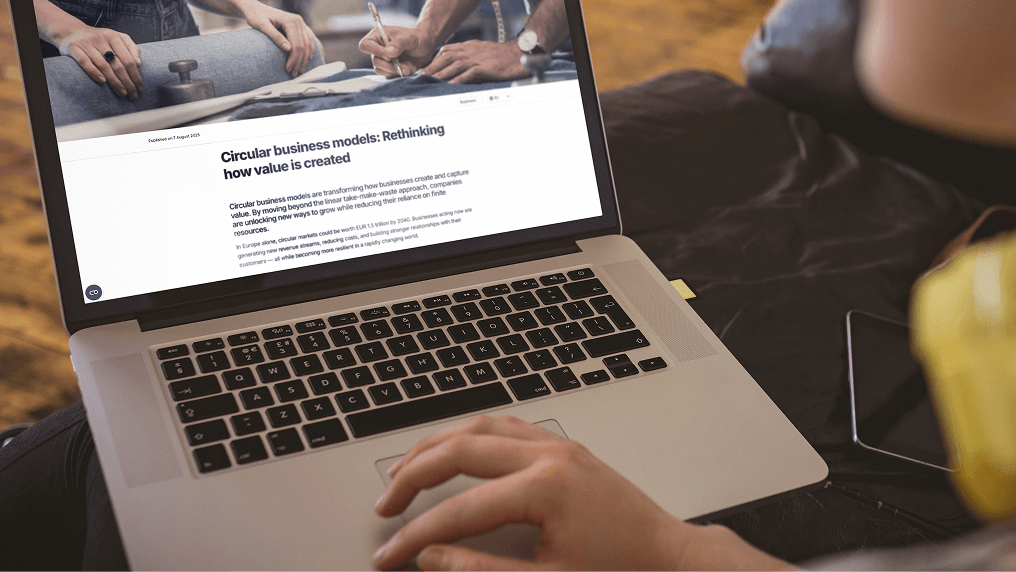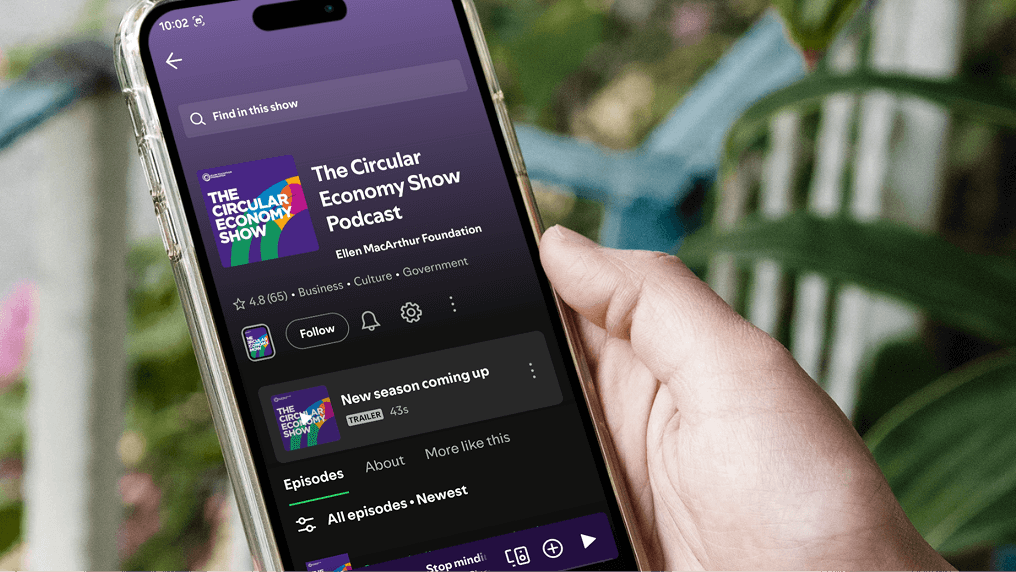The impact of our take, make, waste linear economylinear economyAn economy in which finite resources are extracted to make products that are used - generally not to their full potential - and then thrown away ('take-make-waste'). on our planet’s plant and animal life is undeniable — there is no question that we are losing biodiversity at an alarming rate. The extractive and wasteful way our economy works is responsible for more than 90% of global biodiversity loss and almost half of greenhouse gas emissions. We are all dependent on biodiversity for our survival — from individuals and communities to businesses and cities — which means we need a circular economycircular economyA systems solution framework that tackles global challenges like climate change, biodiversity loss, waste, and pollution. It is based on three principles, driven by design: eliminate waste and pollution, circulate products and materials (at their highest value), and regenerate nature. to restore and regenerate nature.
In this episode, we will examine the vital role of businesses in implementing and scaling circular economy solutions to tackle biodiversity loss.We will also show how this is actively being done in businesses.

Explore more circular economy videos, playlists, and series
Sit back and watch our video content exploring a diverse range of topics related to the circular economy. Hear from leading voices in the circular economy transition and analysis by our circular economy experts.







